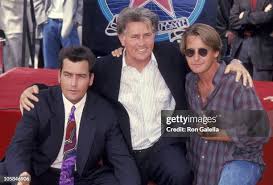The Journey of Emilio Estevez: Actor and Filmmaker

Introduction
Emilio Estevez, the prolific American actor, director, and writer, continues to captivate audiences with his multifaceted talents. Known for his roles in iconic films of the 1980s and 90s, such as ‘The Breakfast Club’ and ‘The Mighty Ducks’, Estevez’s journey through Hollywood remains relevant as he explores new avenues in his career. Recently, he has made headlines both for his work on the screen and for his advocacy in various social issues.
Career Overview
Born on May 12, 1962, in Staten Island, New York, Estevez is the son of actor Martin Sheen and brother of fellow actor Charlie Sheen. Estevez gained fame as one of the core members of the Brat Pack, a group of young actors who shaped the teen film genre in the 1980s. His enduring popularity can be traced back to his pivotal roles in films like ‘St. Elmo’s Fire’ and his directorial debut with ‘Wisdom’ in 1986.
Recent Works
In recent years, Estevez has not only continued acting but has taken on more significant roles behind the camera. Most notably, he reprised his role as Gordon Bombay in the Disney+ series ‘The Mighty Ducks: Game Changers’. Estevez’s involvement in the series highlights his commitment to the franchise that defined his early career and allowed him to connect with a new generation of fans.
Additionally, Estevez is set to star in the upcoming film ‘The Public’, a project he directed, which focuses on a group of homeless individuals seeking shelter in a public library. This film reflects Estevez’s passion for addressing social issues through his cinematic works, showcasing his evolution from actor to socially-conscious filmmaker.
Impact and Legacy
Despite the challenges posed by the evolving landscape of Hollywood, Estevez remains a significant figure in the industry. His willingness to tackle complex topics and his ability to resonate with audiences across different demographics contribute to his legacy. As he continues to work on new projects, fans and critics alike are left wondering what Estevez will accomplish next.
Conclusion
Emilio Estevez’s career exemplifies resilience and adaptability in a competitive industry. As he engages with modern storytelling and revisits his former roles, he reminds us of the importance of growth and relevance in the world of entertainment. The forecast for Estevez looks promising, as he continues to challenge himself and offer meaningful contributions to cinema. For readers, Estevez serves as an inspiration to pursue one’s passions while remaining committed to societal issues, showing that art and activism can go hand in hand.









